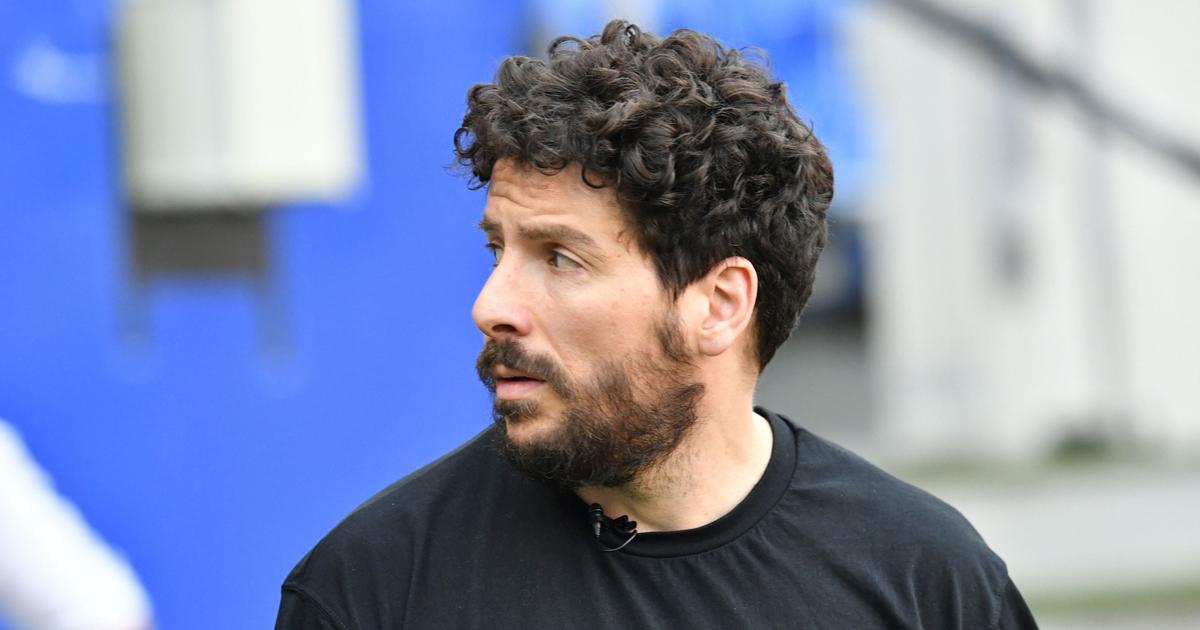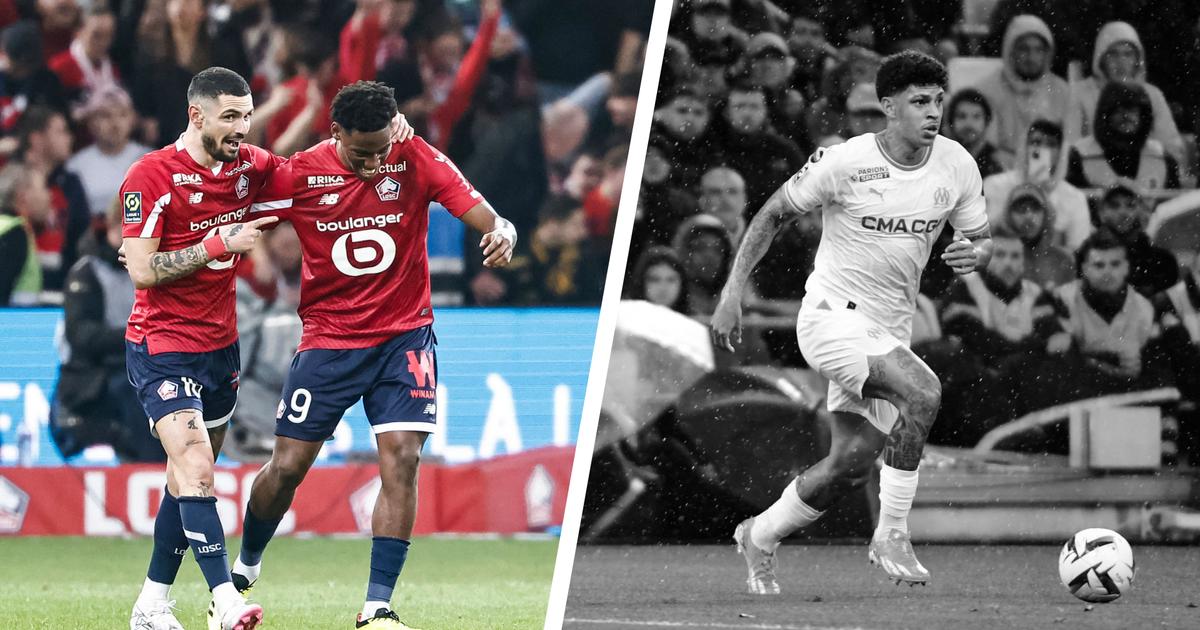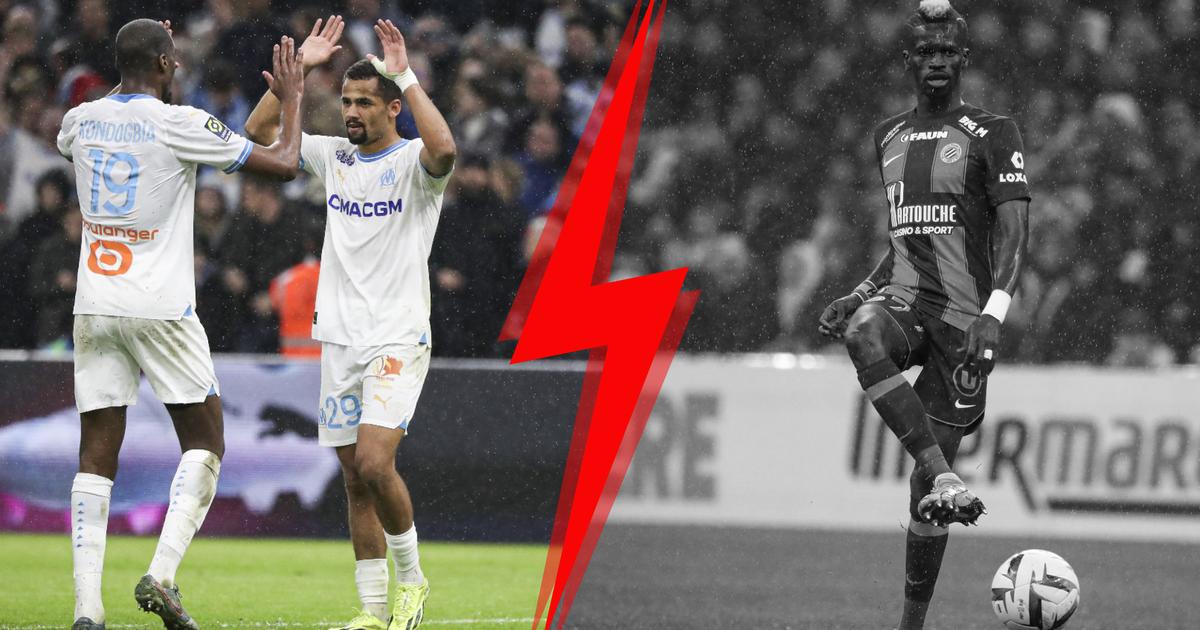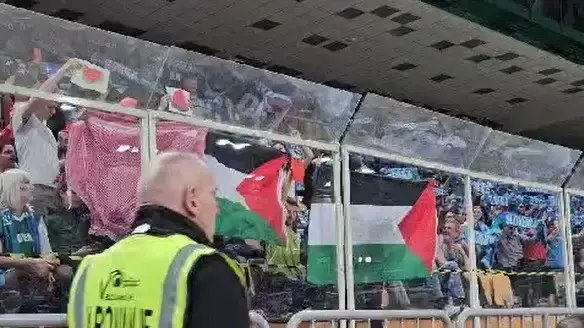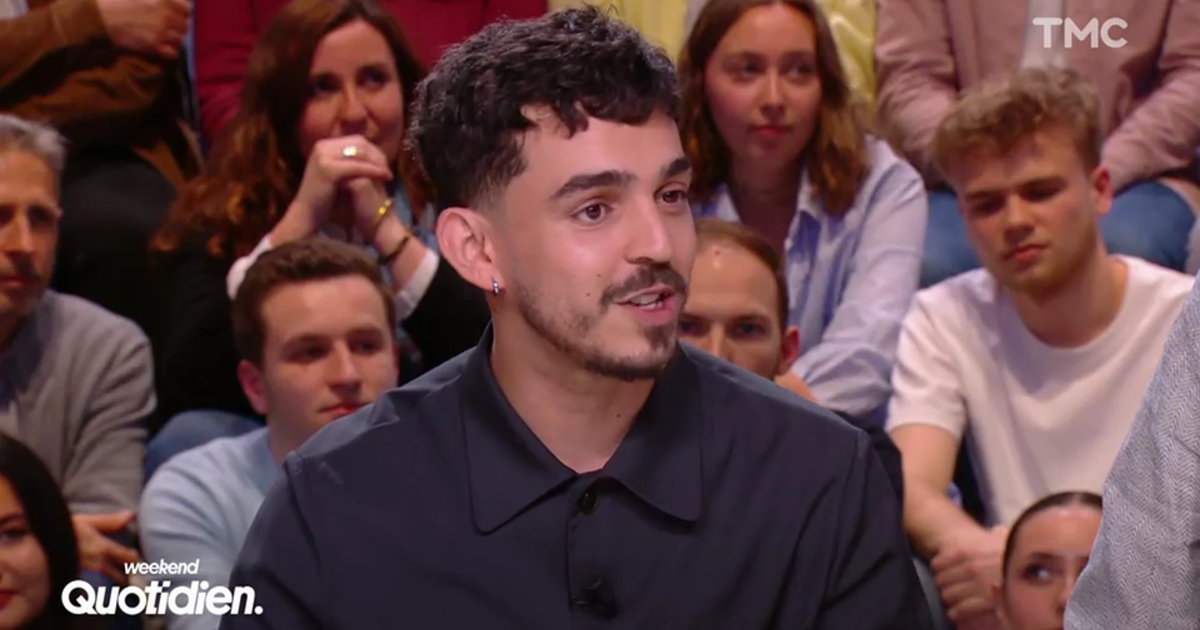It is such a routine sound that it is almost inaudible to neighbors, like the noise of cars passing by on the four-lane road or the train on the nearby track in the Marseille neighborhood of Cité Bassens.
"
Arah!
Arah!
”, A boy is heard in the distance.
Nasser (22 years old), a neighbor of the neighborhood who accompanies the journalist, translates: “It means: Attention, the police are coming!
OR:
Attention, the competitors are coming! ”.
A minute later, the same distant and invisible voice alerts: "That's it, that's it, that's it!"
Nasser translates: "The danger has passed."
More information
Macron to the rescue of Marseille, a city in permanent crisis
Cité Bassens is a group of four-story buildings, a supermarket, an indoor soccer field and tables where, at dusk, children do their homework.
"It is a family, a town," describes Nasser, and says that his father does not want his last name to appear in the media and suggests: "Write that my name is
Nasser Bassens
."
Nasser was a jockey, a competitive rider for a time.
His dream is to be an actor.
Cité Bassens is also one of the centers of drug trafficking in the
quartiers nord
, the northern neighborhoods of Marseille: blocks and blocks of buildings perched on the mountainside with pockets of marginalization and amazing views over the Mediterranean.
"We must stop stigmatizing neighborhoods," says Nasser.
“These young people have not chosen it.
For them, it is survival.
If they are not dedicated to drugs, many have nothing to eat ”.
In early September, French President Emmanuel Macron settled in the city for three days.
In summer, more than ten people died in the gang war for control of drug trafficking.
According to a 2019 report by the Ministry of the Interior, "Marseille is characterized by reckoning between criminals more numerous than in other agglomerations."
Join EL PAÍS now to follow all the news and read without limits
Subscribe here
The violent wave projected the image of a wounded city, out of control.
Three years earlier, the death of eight people when two buildings collapsed on rue d'Aubagne, in the same center, "was a trauma, it marked a before and after," says veteran sociologist Michel Peraldi on a terrace near the Cannebière, the Ramblas of Marseille.
“It revealed”, he adds, “the rather catastrophic state of the city center and the poverty.
And the negligence of the municipal government, the negligence ”.
Monument in memory of a young man murdered in Bassens in June.Bruno Arbesú
Marseille, the second most populous city in France with 850,000 inhabitants, was erected at the beginning of the pandemic as the counterweight to Macron's policy. The symbol was the eccentric Professor Didier Raoult, who, with his original treatments and his
hippy
druid appearance,
defied the supposed rigidity of the Paris scientists. "That was a tragicomedy," analyzes Peraldi. "Like many poor societies, Marseille needs to make symbols of the great resisters, of the rebels."
Macron, in Marseille, took out the checkbook: about 1,500 million euros.
He promised to rehabilitate unsanitary buildings and renovate schools, modernize public transport, bring in more police.
After a quarter of a century in the hands of the right, the municipal government had shifted to the left, but it seemed that the true mayor was the President of the Republic.
"Macron has told local elected officials:
I bring the money, I am the boss,
" sums up the sociologist.
"He has placed himself in the position of the sovereign."
It will not be easy.
Other presidents have tried, without success.
Marseille is "a dead star", according to Peraldi.
It was the great port of the Mediterranean, a global metropolis.
Not anymore.
"Now," he says, "it is a provincial city, but the light of its reputation continues to shine."
There is also a "black legend" around Marseille, says Peraldi.
It is nourished by films such as the American
French connection
, from the seventies, which ends up giving the impression that there is a crime and criminality exclusive to Marseille, when it is common to other cities.
This city is “the visible illustration of the defects of France”, as the local chronicler Philippe Pujol has written, but it has its own characteristics: phenomena such as Islamism are less present in the
Nordic quartiers
than on the outskirts of Paris or Toulouse.
"Marseille is exceptional and abominable," says Rudy Manna, a policeman who knows the terrain and, for a few years, has been the representative in the province of Marseille of the conservative police union Alliance.
Manna explains in a downtown cafe that reckoning is nothing new. “The difference,” he says, “is that a few big shots used to be in command: Zampa, Francis the Belgian, Farid Berrahma. They were people who managed to control all drug trafficking ”. Now there are between ten and twenty who want to control the Marseille market, which represents an incredible mana. There are traffic points that report up to 60,000 euros a day. And it is assembled in a pyramidal way: a boss, the salesmen, the guards, the delivery men. Today a 12, 13 or 14 year old watchman can bring between 120 and 200 euros a day to his family to live. In ten days, he will have earned more than what his parents would earn with the minimum wage ”. Manna points out that it is about trafficking, especially cannabis and cocaine.
In Kallisté, a neighborhood perched on the mountain and on the edge of Marseille, Mourad Radi, 50, cleans the portal of a 13-story block.
He grew up here.
"It would be necessary to destroy everything," he says, "and start from scratch, build small buildings, four or five stories high."
He is reluctant to allow himself to be photographed: gang watchers are watching all the time.
As Peraldi explains in the book
Sociologie de Marseille
, a paradox is that these neighborhoods have such bucolic names: Kallisté means in Greek “the most beautiful”.
And there are Les Bosquets (the groves), Les Rosiers (the rose bushes) and Frais Vallon (cool valley).
Amine Kessaci, Frais Vallon's son, no longer lives there, although he returns regularly.
Like Nasser
Bassens
, he met Macron during his visit to Marseille.
Kessaci is 17 years old and has a brilliant academic career after his mother took him out of the northern neighborhoods and took him to a school in the center.
He is preparing to enter the prestigious Institute for Political Studies.
His brother Brahim could not escape.
He became entangled in the tangle of drug trafficking.
In June 2019, he survived a shooting in which he received nine bullets.
He had a daughter.
I work in a supermarket.
On December 29, 2020, the police found his burned body in a car.
He was 22 years old.
"As long as there is misery in the northern neighborhoods, as long as there is precariousness and unworthy buildings with rats and cockroaches, as long as there are no good transport and there are bad public services, things will not improve," says Kessaci.
"To survive, the closest, the easiest thing is to go trafficking."
Follow all the international information on
and
, or in
our weekly newsletter
.



